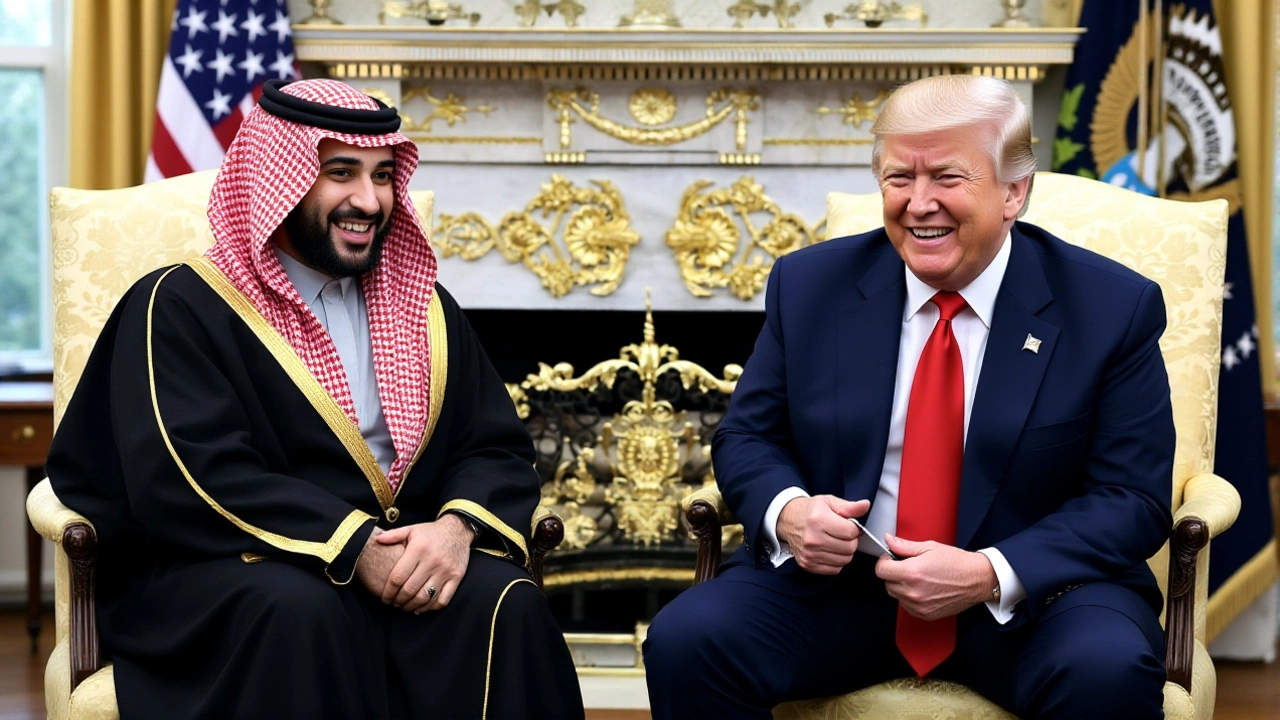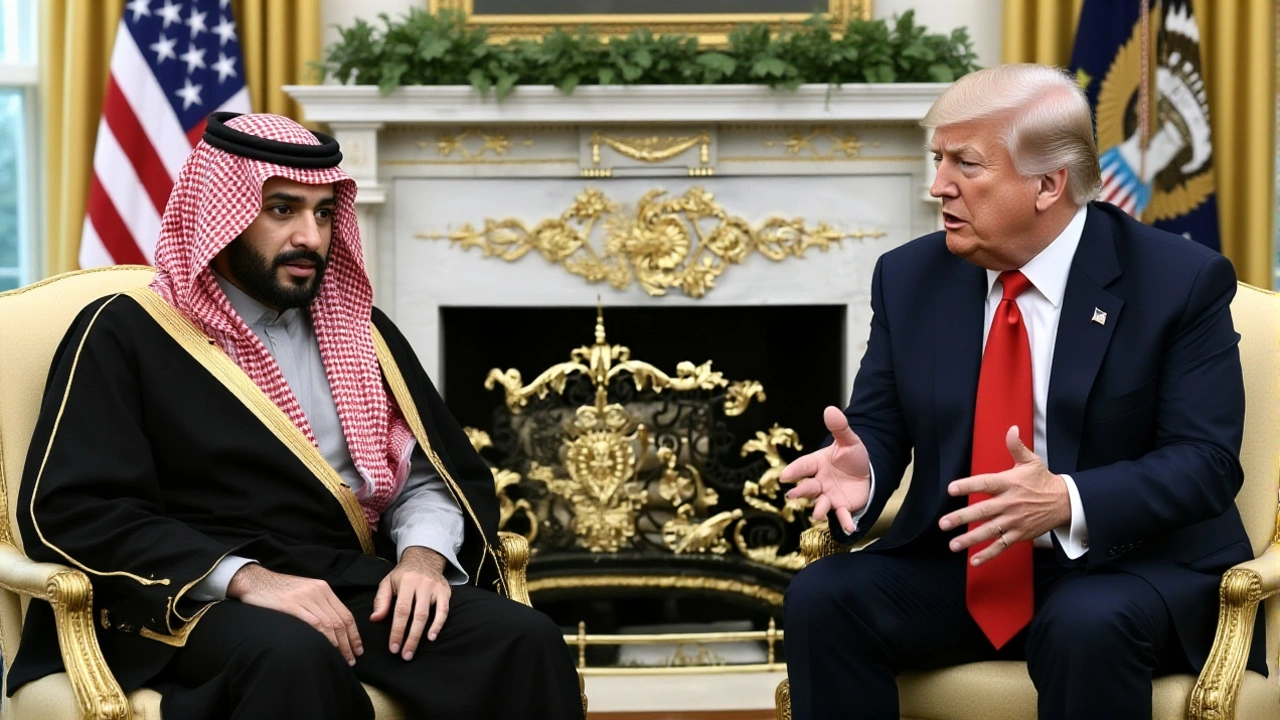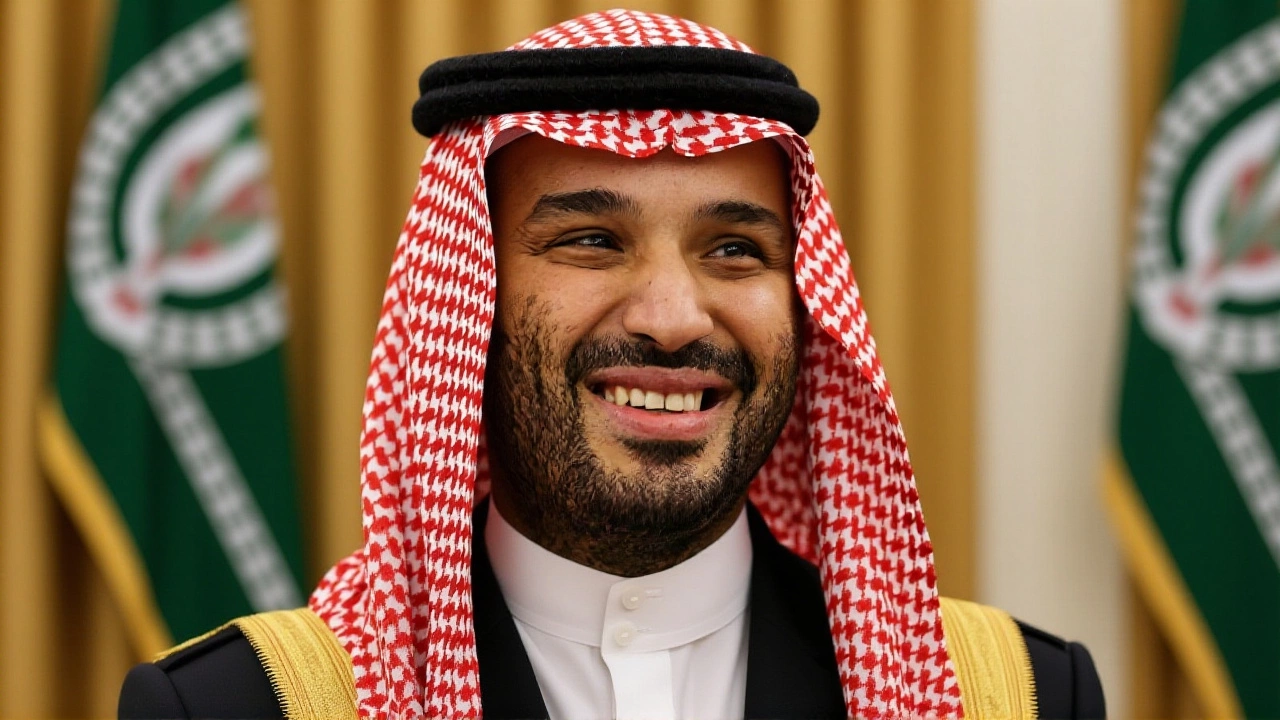On November 18, 2025, Donald J. Trump welcomed Mohammed bin Salman, the Crown Prince of Saudi Arabia, to the White House for a high-stakes summit that redefined the U.S.-Saudi strategic relationship — and reignited global outrage over human rights. The meeting, which began with a press-covered arrival at 1600 GMT and ended with a candlelit dinner attended by billionaires and Republican elites, culminated in the signing of the U.S.-Saudi Strategic Defense Agreement and a pledge by Saudi Arabia to nearly double its investment in the U.S. economy — from $600 billion to almost $1 trillion.
A Pact Built on Iron and Oil
The U.S.-Saudi Strategic Defense Agreement, officially released by the White House on November 20, 2025, is framed as the most comprehensive military partnership since the 1945 Quincy Agreement. It includes provisions for F-35 fighter jet sales, nuclear energy cooperation, artificial intelligence infrastructure sharing, and direct funding from Saudi Arabia to offset U.S. defense costs in the Middle East. The White House called it a "win for the America First agenda," emphasizing that U.S. defense contractors like Lockheed Martin and Raytheon will now enjoy preferential access to Saudi procurement pipelines.
But here’s the thing: this isn’t just about weapons. It’s about geopolitics. With Iran growing more assertive and China deepening ties with Riyadh, Trump’s administration sees the pact as a blunt instrument to lock Saudi Arabia into Washington’s orbit. "The Kingdom views the United States as its primary strategic partner," the fact sheet reads — a line that sounds like diplomacy but reads like a demand.
The Human Rights Paradox
As reporters pressed both leaders on the 2018 murder of Washington Post columnist Jamal Khashoggi, Trump didn’t just dodge the question — he doubled down. "A lot of people didn’t like him," Trump told ABC News’ Mary Bruce, dismissing the killing as a matter of political taste. When asked about Saudi Arabia’s record of 345 executions in 2024 — the highest ever recorded — Trump replied, "I’m very proud of the job he’s done. What he’s done is incredible in terms of human rights and everything else."
That statement didn’t just shock human rights groups. It stunned even longtime allies. Amnesty International called it "a moral collapse," while Human Rights Watch noted that Saudi Arabia’s judicial system now executes more people annually than Iran, China, and the U.S. combined — and does so without public trials or legal representation for many defendants.
The disconnect is staggering. On one hand, the U.S. touts itself as a defender of democracy. On the other, it’s signing billion-dollar deals with a regime that locks up activists, silences journalists, and publicly beheads dissenters. The White House didn’t address any of this in its fact sheet. Not one word.

Abraham Accords: A Conditional Offer
One of the most surprising developments came from Crown Prince Mohammed bin Salman himself: he signaled Saudi Arabia’s willingness to join the Abraham Accords — the U.S.-brokered normalization deals between Israel and several Arab states. But there’s a catch.
"The path to a Palestinian state is crucial," MBS told Trump, according to The Times of Israel. That’s not just diplomacy — it’s a lifeline. For years, Saudi Arabia has refused to normalize relations with Israel without a credible path to Palestinian statehood. Now, with regional tensions rising and U.S. pressure mounting, Riyadh appears to be testing whether Trump’s administration will pivot on Palestine.
It’s a gamble. If Trump refuses to back a two-state solution, Saudi Arabia may walk away from the Accords — and with it, the chance to secure billions in U.S. defense tech. If he does, he risks alienating his own base: pro-Israel donors and evangelical voters who see any concession to Palestinians as betrayal.
Behind Closed Doors: The Dinner and the Deals
While the press was barred from the bilateral lunch, Right Side Broadcasting Network captured footage of MBS delivering a speech to a private audience before joining Trump for a candlelit dinner. Attendees, according to the World Socialist Web Site, included "billionaires, corporate executives and Republican politicians." Among them: Elon Musk, Jared Kushner, and executives from Boeing and Halliburton.
What was discussed? No one knows. But leaked emails to DWS News suggest talks centered on a secret nuclear fuel-sharing arrangement, AI-driven surveillance systems for Saudi security forces, and a potential U.S. guarantee to protect Saudi oil infrastructure from Iranian attacks — in exchange for a long-term oil price stabilization pact.
The WSWS called the gathering "two billionaire rulers perched atop political powder kegs," and it’s hard to argue. Trump, facing multiple legal battles and a potential 2028 comeback, needs cash. MBS, under international scrutiny and domestic pressure, needs legitimacy. They found each other — and struck a deal that could reshape the Middle East for decades.

What Comes Next?
The $1 trillion investment pledge is not yet a contract. It’s a target. Saudi Arabia’s Public Investment Fund (PIF) has already committed $300 billion to U.S. infrastructure, tech startups, and renewable energy projects since 2023. The rest? That’s where things get murky. Will it be funneled into defense contractors? Real estate in Florida? AI labs in Silicon Valley? No one has released a breakdown.
Meanwhile, Congress is bracing for backlash. Senators from both parties have signaled they’ll block F-35 sales unless human rights conditions are attached. The State Department has already received 14 formal inquiries from human rights NGOs. And in Riyadh, whispers are growing that the Crown Prince’s own allies are nervous — fearing the U.S. will demand too much in return.
One thing is clear: this isn’t diplomacy. It’s transactional realpolitik at its most naked. And it’s working — for now.
Frequently Asked Questions
What exactly is in the U.S.-Saudi Strategic Defense Agreement?
The agreement includes F-35 fighter jet sales, nuclear energy cooperation for peaceful power generation, AI infrastructure sharing for defense and surveillance, and direct Saudi funding to offset U.S. military operations in the Middle East. It also grants U.S. defense firms preferential access to Saudi procurement contracts, effectively removing prior barriers to entry. No public timeline exists for implementation.
Why is the $1 trillion investment figure controversial?
Because it’s a pledge, not a binding contract. The $600 billion announced in 2024 was already partially allocated. The new $1 trillion includes speculative future investments in sectors like AI, renewables, and infrastructure — areas where Saudi Arabia has limited expertise. Critics argue it’s political theater designed to impress markets, not a concrete economic plan.
Did Trump and MBS discuss the 9/11 attacks?
Yes — during a private exchange, according to the World Socialist Web Site. Reporters asked MBS about Saudi government ties to the 9/11 hijackers, and he reportedly responded that "the Kingdom has cooperated fully with U.S. investigations." Trump, however, cut in: "We’ve moved on. We’re focused on the future." No official record of the exchange exists.
How is Congress likely to respond?
Senators from both parties, including Bernie Sanders and Lindsey Graham, have signaled they’ll introduce amendments to block F-35 sales unless Saudi Arabia meets human rights benchmarks. The Senate Foreign Relations Committee plans hearings in January 2026. But with Trump’s influence over Republican lawmakers and Saudi lobbying power, passage is uncertain.
What does this mean for the Palestinians?
MBS made it clear: Saudi Arabia won’t join the Abraham Accords without progress toward a Palestinian state. That puts pressure on Trump to reverse his administration’s pro-Israel stance — something he’s shown no willingness to do. If no concrete steps are taken by mid-2026, Riyadh may delay or withdraw its Accords commitment, risking a major diplomatic rupture.
Is there a risk of nuclear proliferation?
Yes. While the agreement claims nuclear cooperation is for "peaceful energy," experts warn that Saudi Arabia has long sought uranium enrichment capabilities. The U.S. has never allowed a non-nuclear-armed state to develop enrichment technology under a bilateral deal. If Riyadh pushes for fuel-cycle access, it could trigger a regional arms race — with Iran, Turkey, and Egypt all watching closely.




